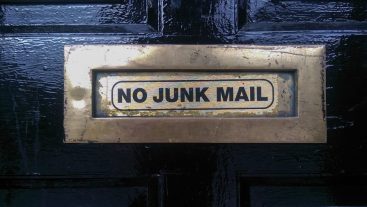Yesterday, the computer literacy group I volunteer with received a number of handouts about computer security when on the Internet. I know sometimes I laugh these off, and I’m not about to stop putting myself out there in cyberspace, but I do need to be careful. So as a reminder to myself and a checklist for others, here are some security precautions we should follow. There are probably a lot more, so please comment and let us know your tips for keeping safe online.

- Always make backups of important information and store in a safe place separate from your computer (with the power of those little memory sticks, this is easy).
- Turn off your computer and disconnect from the network when not using the computer. A hacker cannot attack your computer when you are disconnected from the network or the computer is off. Since my husband says I don’t have a technical bone in my body, I also turn the power to my computer off. Reason tries to tell me that if the computer isn’t on, no one can access it, but you never know!
- Update and patch your operating system, web browser and software frequently. (This one I need to work on).
- Install a firewall. Without a good firewall, viruses, worms, Trojans, malware and adware can all easily access your computer from the Internet. Just typing this list makes me feel like Dorothy in the Wizard of Oz. Instead of repeating “lions and tigers and bears”, it’s “viruses and worms and Trojans, oh my!”
- Review your browser and email settings for optimum security. At a minimum set your security setting for the “Internet zone” to High, and your “trusted sites zone” to Medium Low (another area I need to think about more).
- Install anti-virus software and set for automatic updates so that you receive the most current versions. My favourite anti-virus software is still AVG. And even though I use the free version, it works better than Norton ever did for me.
- Do not open unknown email attachments. It is simply not enough that you may recognize the address from which it originates because many viruses can spread from a familiar address. I can vouch for this one, since I got a Trojan once from an attachment that had been sent by a friend. The virus was in his address book and automatically sent itself out to everyone he had listed there. By the time my friend realized it, the infection had spread to a lot of people. Now I rarely open attachments, and if I do, I scan them first. (See, I’m learning to be careful).
Okay, more tips, please. I know you’re just itching to tell me.



Great article, but do remember that the only really secure computer is an unplugged one with no hard drive.Even better from a security standpoint the hard drive has had a drill run though it in 3 or more places(even better it is then smashed with a sledge hammer into many pieces).In spite of that knowledge I still compute and as I look into the future will continue to do so(yes I twitter https://twitter.com/nar321, have if somewhat neglected Facebook, My Space and YouTube pages. Even have several Blogs.
Glad to hear you’re using twitter Robert, and I realized I was already following you. As for the other social areas you mentioned, I don’t think My Space appeals to me at all. Facebook I use only for family, although I’m thinking about starting another one for business – not sure if it’s worth the extra effort though.
And Youtube, since I bought my Flip camera and it’s so easy to use, I intend to do more video.